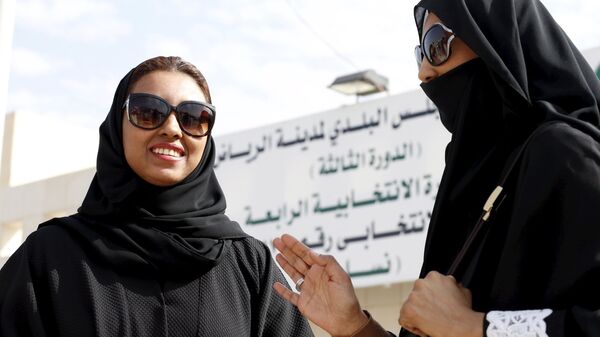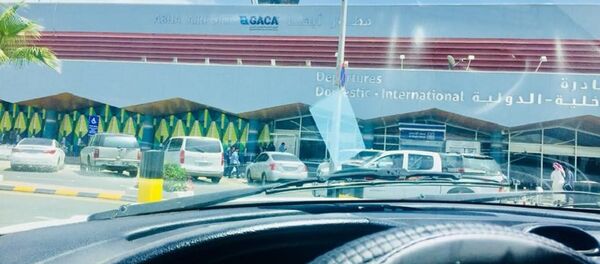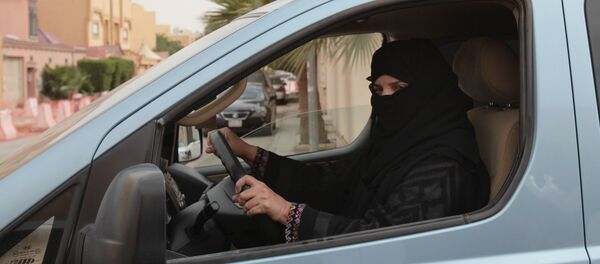The Shura Council, the kingdom's formal advisory body, passed a draft law on Monday that will require offenders to spend up to five years behind bars and pay a maximum penalty of $80,000 if they're found guilty of sexual harassment. The law was approved by the Saudi cabinet on Wednesday, the Saudi Press Agency reported.
"After reviewing the comments of His Royal Highness the Minister of Interior, and after considering the Shura Council Resolution No. (163/40) dated 13/9/1439 H (May 28, 2018), the Council of Ministers decided to approve the system to combat the crime of harassment," the official cabinet statement reads.
The legislation contains eight articles that "aim at combating the crime of harassment, preventing it, applying punishment against perpetrators and protecting the victims in order to safeguard the individual's privacy, dignity and personal freedom which are guaranteed by Islamic law and regulations," the statement adds.
However, what constitutes harassment is not outlined.
[This is] a very important addition to the history of regulations in the kingdom," Shura council member Latifa al-Shaalan said Wednesday, the Khaleej Times reported.
"It fills a large legislative vacuum and it is a deterrent system when compared with a number of similar laws in other countries," she added.
Despite Saudi Arabia's liberalization efforts, the country still has multiple controversial laws in place. Under Saudi Arabia's male guardianship system, women must have a male guardian — either a father, brother, husband or son — to make decisions on her behalf. In addition, there is no penal code in the country that specifically criminalizes rape. There are also no laws outlawing marital or statutory rape.
Last September, the country's King Salman issued a royal decree allowing women to drive as of June 24, 2018.
The decree follows Crown Prince Mohammed bin Salman's announcement of the Saudi Vision 2030 program on April 25, 2016. The program, which includes 80 projects costing between $3.7 and $20 million each, is intended to help decrease the kingdom's dependence on oil for its income, increase government spending on its military and develop public service sectors for health, education, recreation and tourism by 2030, among other initiatives.
"Our vision is a strong, thriving and stable Saudi Arabia that provides opportunity for all. Our vision is a tolerant country with Islam as its constitution and moderation as its method. We will welcome qualified individuals from all over the world and will respect those who have come to join our journey and our success," the Saudi Vision website states.
"We intend to provide better opportunities for partnerships with the private sector through the three pillars: our position as the heart of the Arab and Islamic worlds, our leading investment capabilities and our strategic geographical position. We will improve the business environment, so that our economy grows and flourishes, driving healthier employment opportunities for citizens and long-term prosperity for all."
However, despite the country's liberalization drive, Saudi authorities have arrested at least a dozen activists since mid-May, according to Human Rights Watch. It is unclear where or why the activists are currently being held in custody.
"We urge the Saudi Arabian authorities to reveal their locations and ensure their rights to due process guarantees," UN Human Rights Office spokeswoman Liz Throssell said during a recent briefing in Geneva, Switzerland, Reuters reported.
"If, as it appears, their detention is related solely to their work as human rights defenders and activists on women's issues, they should be released immediately," she added.






